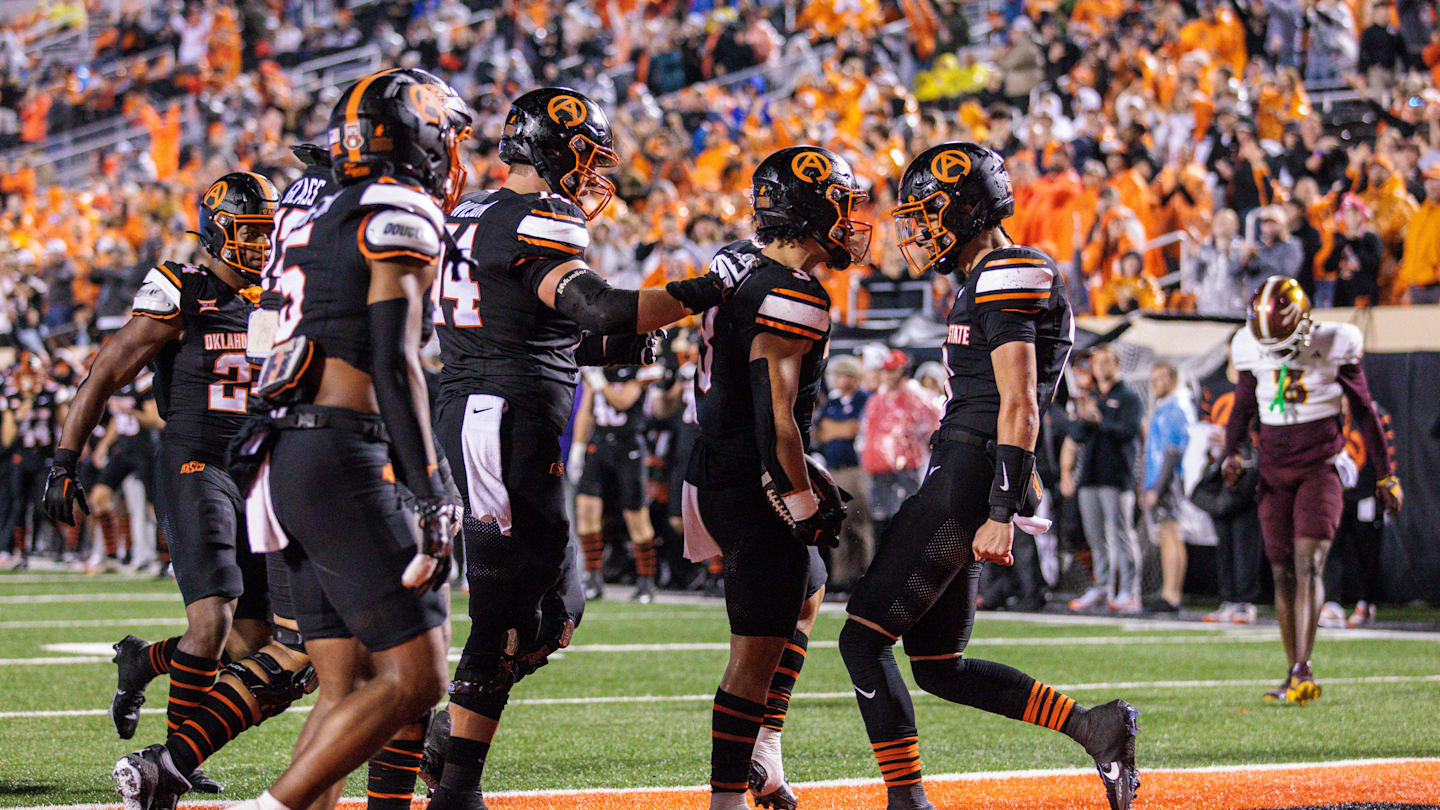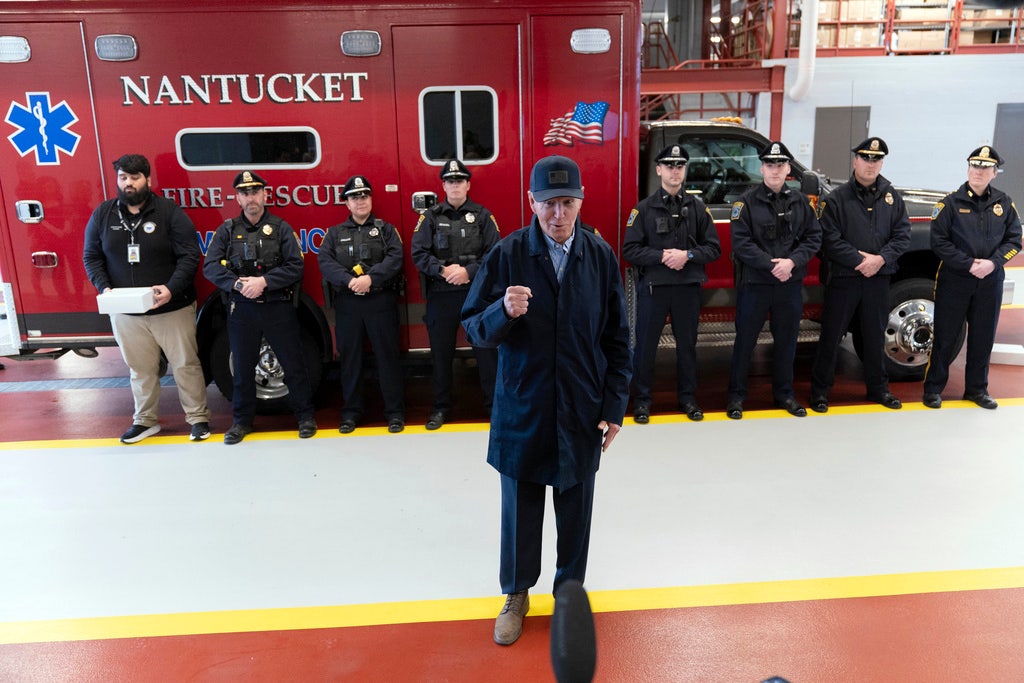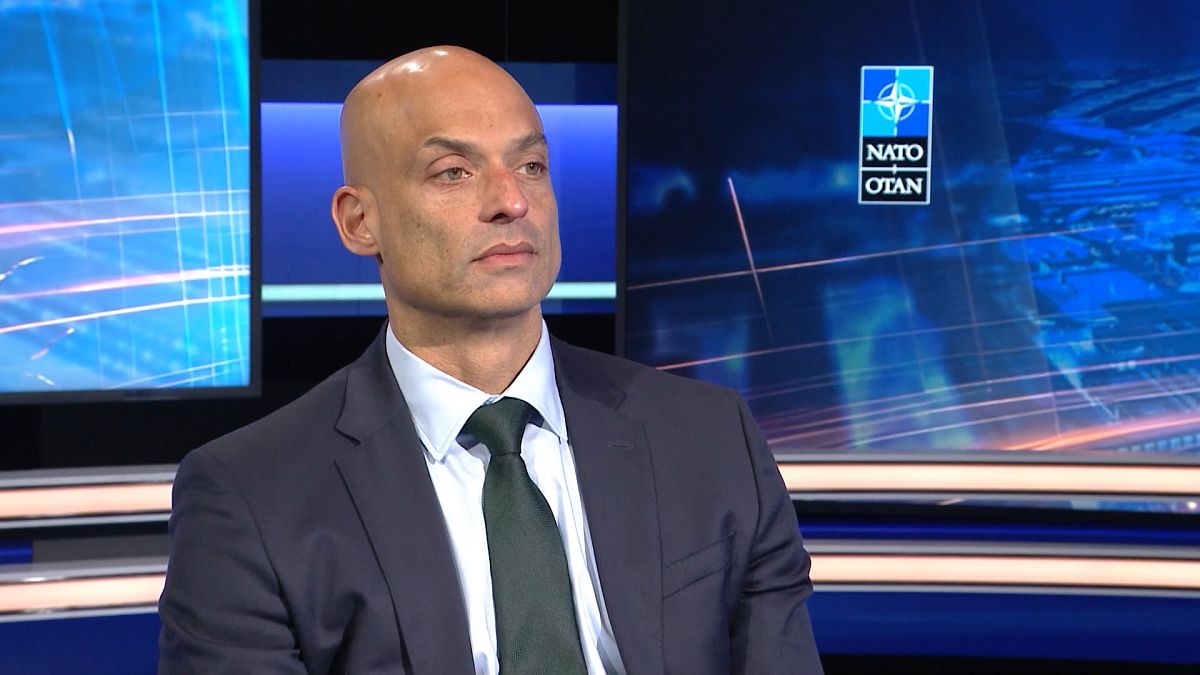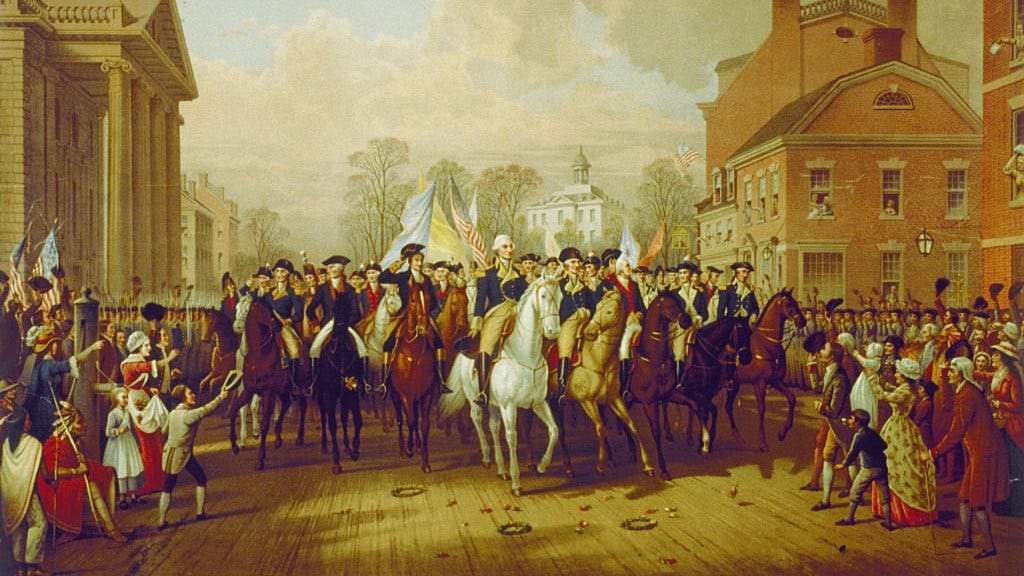Sports
Column: For already-weary Lakers, in-season tournament title has come with a cost

We talkin’ about the Lakers unveiling a banner to celebrate winning the NBA’s first in-season tournament?
Really?
The Lakers — the 17-time NBA world champion Lakers — hanging something on the wall at Crypto.com Arena other than an 18th NBA championship banner?
That feels beneath them. Trivial.
But there it was Monday night, no doubt at the insistence of the league, revealed after a brief ceremony that included video highlights of the tournament and an appearance by the trophy they had hoisted after they beat Indiana on Dec. 9 in Las Vegas.
The modestly sized banner, in black and gold, is grouped with banners honoring the five titles the Lakers won while based in Minneapolis and it has room to add the years of future triumphs. Given the competitive and ratings success of the first edition of the tournament and commissioner Adam Silver’s strong backing of his pet project, it’s pretty much a lock that there will be other tournaments in the years to come.
“It’s the first one and it was cool,” Lakers guard Austin Reaves said of the appropriately brief pregame ceremony.
“It was cool to be a part of winning that and that whole deal, but now that’s over and we’ve got to focus on the season and try and hang another one up at the end of the year.”
Those are the ones that matter. At the rate the Lakers are going, the in-season tournament banner might not get any company soon.
The night they displayed the new banner wasn’t a banner night for the Lakers, whose 114-109 loss to the New York Knicks on Monday was their third loss in four post-tournament games. A hectic schedule that has been heavy on road games has combined with seasonal illnesses, nagging injuries and fatigue to rattle their rhythm and take some of the edge off their game.
“We’ve seen what we can do when we’re 100% healthy. We’ve just got to get there. Keep fighting,” Anthony Davis said after scoring a game-high 32 points and grabbing 14 rebounds. “There’s nothing more we can say or do. Just take the challenge.”
The in-season tournament bragging rights are nice, but they’ve come with a cost of extra mileage on already-weary legs and minds.
“I think it could be a little bit of everything,” LeBron James said after his 25-point, 11-rebound, 11-assist performance, his second triple-double this season and 109th regular-season triple-double of his career. “I don’t know. Have you seen Indiana’s record since Vegas?”
Why, yes. The Pacers are 1-4. Misery apparently has company.
“I’m not one to use excuses,” coach Darvin Ham said of the Lakers’ performances since their tournament triumph. “I thought the way we played during that time was great. We were whole. Had some unfortunate tweaks here and there and now unfortunate sickness or whatever. But we knew the games were interwoven.
“Las Vegas wasn’t a long flight for us but it’s just obviously being within the normal schedule, it’s going to have an effect, be it positive or negative. I thought it was more positive than negative for sure, but that said, there is a travel schedule.”
And they have miles to go before they sleep. They’ll play back-to-back games Wednesday and Thursday at Chicago and Minnesota before finishing a trip at Oklahoma City. Then it’s back home to face the Boston Celtics in a Christmas Day matinee. “Nobody’s going to feel sorry for you,” Ham said, truthfully.
On Monday they trailed by 12 in the second quarter, led by one at the half, and cut what was a 10-point deficit after three quarters to four with 3 minutes and 38 seconds left in the fourth quarter. It was a game of runs, as Ham loves to say, and the Lakers were outrun by the Knicks, who bounced back well from a 144-122 thrashing they took from the Clippers last Saturday.
“We competed and gave ourselves a chance to stay in the game but that was a tough one for us,” James said.
“We’ve got to get some rest and get healthy. Finish out December the right way. Obviously it’s been a killer for us with the travel and games and things of that nature, so no rest for the weary. You’ve just got to mentally stay locked in and get ready for Chicago first.”
Despite the downside of the extra effort and travel the tournament required, James said he enjoyed the ceremony Monday and what it represented.
“I think it was awesome. To acknowledge wins throughout the course of a marathon, I think it’s pretty cool, and that’s the first, the inauguration of it and we was able to win it,” he said. “For our fans that didn’t get an opportunity to be in Vegas, they get an opportunity to kind of share that celebration with us tonight. Share that moment. Something that will live on forever, for sure. It was a good moment.”
The Lakers have to hope winning the banner they displayed Monday won’t take a long-term toll and hurt their chances of earning a bigger and more important banner later.

Sports
For Kansas State and Iowa State, Farmageddon is a treasure — and the stakes have never been higher

America’s breadbasket straddles the Missouri River, with Iowa on the eastern slope and Kansas burying a knee in its back from the southwest. The river’s thick, muddy waters and countless tributaries irrigate the world’s most fertile farmland. In Iowa, that means corn, hogs and even turkeys. In Kansas, that’s winter wheat, sorghum and cattle.
Agriculture dictates business in both states, and their land-grant institutions are among the nation’s best at cultivating the next crop of farmers. It has led Iowa State and Kansas State to forge close ties, and that cooperation spills over to competition in athletics. It also helped launch one of the greatest rivalry nicknames in sports.
Once considered a derisive moniker, “Farmageddon” has nudged its way into the lexicon of modern college football in a way that belies its threadbare roots. In a new-look Big 12 scuttled and reformed through realignment, Farmageddon is a relic and a treasure. With expansion, teams change conferences and rivalries disintegrate. Yet Iowa State and Kansas State have found in each other an organic partner and competitor.
“There’s that sense of a rivalry between the two schools, and it’s always a battle,” said Kansas State defensive end Brendan Mott, who grew up in Iowa City, Iowa. “It’s super physical up front. The conditions are always tough. It’s definitely a rivalry. I know us as players look forward to it every year. And I’m sure Iowa State does as well.”
#CyclONEnation fans voted overwhelmingly to start a trophy with one longtime foe, who ISU has played every year since 1917. Iowa state players agree.
Should Iowa State and K-State meet for ‘The Reaper,’ as the Paul Bunyan’s Axe of the Plains?
Our story:https://t.co/cJl9LJM2Kd pic.twitter.com/fXo07uOXUs— Scott Dochterman (@ScottDochterman) August 16, 2022
Farmageddon has never meant more to the contestants, fans or college football, and the series has soared in importance. For just the second time in their century-plus competition, the programs meet as ranked opponents. Saturday night at Jack Trice Stadium, No. 18 Iowa State (9-2, 6-2 Big 12) could win a 10th game for the first time in school history and qualify for the Big 12 Championship Game. No. 24 Kansas State (8-3, 5-3) could ruin the party in Ames and perhaps sneak into the title game itself.
“We’ve had the game circled,” Kansas State tight end Will Swanson told reporters.
Humble beginnings
For generations, the Kansas State and Iowa State football teams sat like loose nails on a wooden fence waiting for the hammer to pound them into place. From the start of the Big Six Conference in 1928 through the completion of the Big Eight in 1995, either the Cyclones or the Wildcats finished in last place 54 times in 68 seasons. In 1989 and 1991, Kansas State moved its home games with Oklahoma to Norman so both squads could generate more revenue.
Then came the Manhattan Miracle led by Bill Snyder. In perhaps the greatest turnaround in college football history, Snyder took a program teetering toward shifting to a lower division and won multiple Big 12 championships. Snyder, a College Football Hall of Fame inductee, was 215-117-1 in 27 seasons with five top-10 finishes. The Wildcats had participated in one bowl game in their first 93 years. Snyder took them to 20.
“When you look at both programs, their histories are very similar,” said Jeff Woody, a running back at Iowa State from 2009-13. “Kansas State just came out of it sooner. Kansas State, before Bill Snyder got there, was awful, and Iowa State was awful until (Dan) McCarney got there.”
Iowa State had a few peaks under McCarney, but the Cyclones were well behind their foes 350 miles to the southwest. For 90 years, it was less a rivalry than just a series between two similar institutions that simply played every year.
“They had a great run under coach Snyder, and in some ways, they were the gold standard of what maybe Iowa State kind of aspired to do,” said Iowa State’s Jamie Pollard, who ranks third in longevity among Power 4 athletic directors. “Their institutional composition, their makeup, their history, is more like us than not.
“You look at K-State as a program. They won Big 12 championships. They played in the Cotton Bowl. They did some things that Iowa State would like to do. Quite frankly, with coach (Chris) Klieman there right now, in some ways the path to where we want to go kind of goes through them.”
Farmageddon
In 2007, Kansas and Missouri played a top-five matchup at Arrowhead Stadium. The stands were full and feisty, the game a rousing success. Kansas City Chiefs brass then reached out to multiple schools to gauge interest in staging future games.
“K-State was willing, as we were willing, to each give up a home game, so we did the two-year deal,” Pollard said. “It was a good one-off opportunity that allowed us to go to the Kansas City market, which is a big market for us.”
Before the first game in 2009, a Kansas State fan site coined the phrase “Farmageddom.” It caught on quickly and appeared in newspapers and other media outlets. At first, many fans and supporters considered the term cringeworthy and cliche. The nickname, however, gathered momentum and stuck despite the series moving back to campuses in 2011.
Concurrently, the Big 12 was amid a radical realignment. In multiple years, there were heavy discussions about six schools — including Texas and Oklahoma — joining the Pac-10. After the 2010 season, Nebraska and Colorado left for the Big Ten and Pac-10, respectively. The next year, Missouri and Texas A&M bolted for the SEC. Each time, Iowa State and Kansas State were left twisting at the whims of their higher-profile colleagues. Amid the chaos, a bond formed.
“I was in college for the first round of realignment, and Kansas State was also one of those afterthought schools,” Woody said. “And you go, ‘Well, where do we go?’ Kansas State, Oklahoma State, Iowa State and Texas Tech were the land-grant schools. No one expects as much from us. It’s sort of a sibling rivalry that I can fight you and you can fight me, and we can hate each other, but no one else is allowed to hate us.”
New era
Saturday marks the 108th consecutive season the Wildcats and Cyclones face off, but the stakes never have been higher. When both schools were ranked in 2002, it was midseason, and K-State rolled past Iowa State 58-7. Now, it’s the season finale and both teams still harbor Big 12 title hopes.
Should the Cyclones win, they’re almost certain to appear in the title game for the second time, barring a three-way tie and a complicated tiebreaker. But the percentages are low, and coach Matt Campbell said Tuesday it’s not something that concerns him.
Kansas State, which won the Big 12 title two seasons ago, must win and get help to make another title appearance. The long odds don’t detract from the game’s importance, however.
Last year, 6 inches of snow fell during the Cyclones’ 42-35 win in Manhattan. In a game dubbed “Snowmageddon,” Iowa State running back Abu Sama III rushed for 276 yards and three touchdowns. For Saturday’s prime-time kickoff, temperatures are expected to fall into the single digits.
“It always seems like it’s a cold game or snowy game or something like that,” Mott said. “It’s always a good brawl and battle. Last year, they came down to Manhattan. It was a snowy game, and it was our senior night, and we didn’t really have the game that we wanted to have. So, we’re a real hungry team.”
Since the term Farmageddon was applied to this series, unusual situations and surroundings have determined the outcome. In the first Arrowhead game, Iowa State missed an extra point in a 24-23 Kansas State win. From 2014 through 2017, the Wildcats won four straight by 5 points or fewer. In 2015, Iowa State led by a touchdown with the ball and 1:31 left. All the Cyclones needed to do was kneel for the victory because Kansas State had just one timeout remaining.
Instead, Cyclones coach Paul Rhoads chose to run the ball on first down. The back fumbled, and Kansas State tied the score with a touchdown four plays later. A strip-sack with 10 seconds left led to Kansas State’s game-winning field goal. Rhoads was fired the next day.
I’m intrigued by what @ChrisMWilliams thinks about this. Since Mizzou left for the SEC a decade ago, Iowa State is down to a single traveling trophy. Is it time to add another? If so, which school?
— Scott Dochterman (@ScottDochterman) August 14, 2022
Campbell’s arrival in 2016 has escalated the stakes. He’s 4-4 against Kansas State, which matches the number of Cyclone wins against Kansas State from 1999 through 2007. Klieman replaced Snyder in 2019 and is 2-3 against the Cyclones. The programs are built with the same principles with development at their core. Iowa State leads the series all-time, 53-50-4.
“Both football teams play a style that their fan bases really embrace,” Kansas State athletic director Gene Taylor said. “They’re similar in a lot of ways, just hard-nosed kids from small-town Iowa, small-town Kansas. They just go out and really play good, hard, solid football.”
Future
There’s little chance of snow or below-zero temperatures for next year’s Farmageddon. Kansas State shifted the game to Ireland, and it will take place in Week 0. Aer Lingus, which operates an annual game in Dublin, met with Iowa State and Kansas State to consider playing a game there. Iowa State will host only four Big 12 games in 2025, so it declined. Taylor thought Klieman would do the same but asked his coach to research the proposal.
“I said, ‘There’s no way Klieman is moving the Iowa State game to a neutral site in Ireland,’” Taylor said. “Chris came down to my office and said, ‘Let’s do it.’ I was shocked, literally, because of the importance of the game.”
Another change is on the horizon, one that has agitated the fan bases. In the 16-team Big 12, in which eight new members have joined in the last two seasons, only four rivalries (all in-state) are protected annually. Farmageddon is slated to cycle off the schedule in 2027. There are no plans for the schools to meet in a nonconference game.
“There have been a lot of changes,” Taylor said. “We probably haven’t had a chance to really slow down and take a look at an option like that. But I think it’s worthy of discussion in the future. And say maybe we do rotate — not just one team a year that you play every year, maybe it is two or three teams. How do we keep Iowa State for us and Kansas and rotate everybody else?”
Reminder: Farmageddon is not officially recognized as a rivalry by @CycloneATH @kstatesports or the @Big12Conference
Seems like as good of time as ever seeing as the next two matchups include:
-Championship and Playoff implications
-International stand-alone game
— Jack Trice Mafia (@JackTriceMafia) November 24, 2024
Once an afterthought, Farmageddon now resonates as an authentic rivalry shaped by similarity and substance. Mott, Woody and both athletic directors acknowledge the other has become their school’s No. 2 rival, just behind their in-state foes. It matters emotionally and competitively.
“Ohio State–Michigan have played each other for forever, and that’s like a true hatred,” Woody said. “But the existence of those programs has never been threatened, like what happened to Iowa State and Kansas State. So, recognizing that it almost fell apart, and there’s this good thing between two similar programs that because it almost fell apart, you appreciate it for what it is. It’s impossible not to see the similarities between the programs.”
“It is kind of that battle of the farmers,” Mott said. “I think it’s cool it’s got this nickname. It just adds to the rivalry.”
(Photo: Scott Winters / Icon Sportswire via Getty Images)
Sports
NHL goalie inexplicably puts lead goal in own net
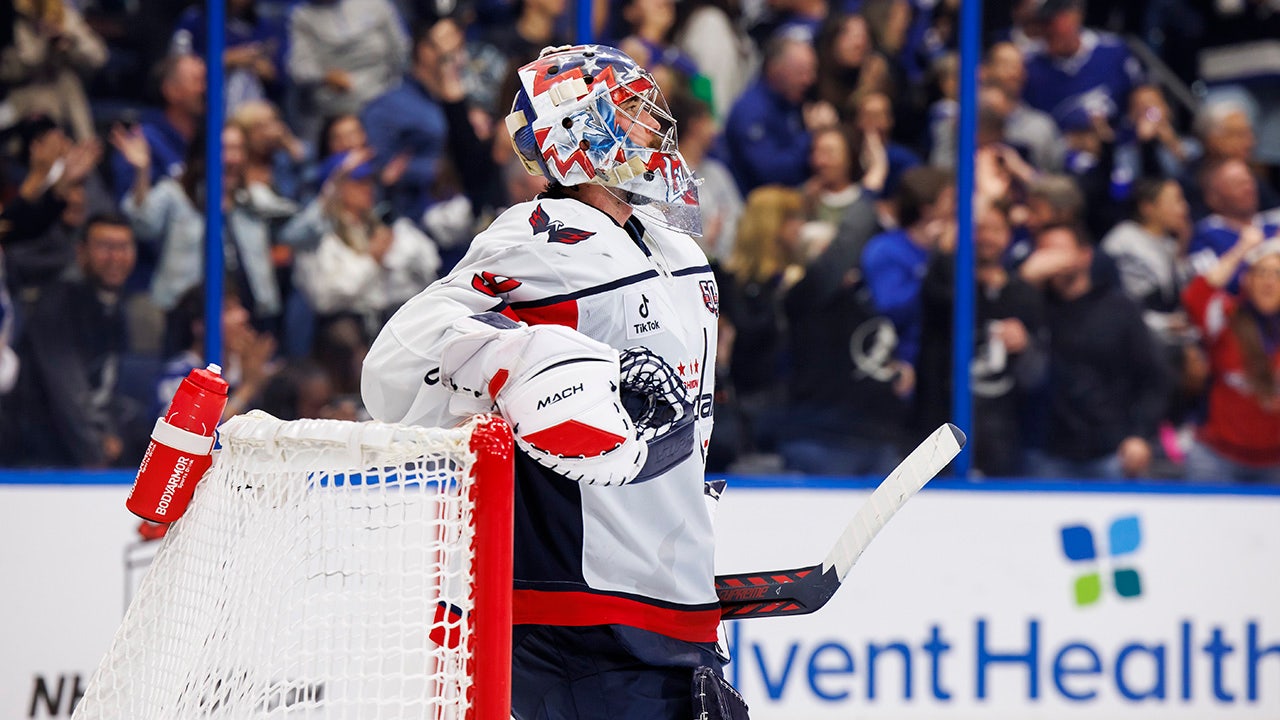
Charlie Lindgren gave the Tampa Bay Lightning the biggest gift any team could ask for on Wednesday night.
Lindgren was the netminder for the Washington Capitals in Florida on Thanksgiving Eve with the game tied at 3 in the third period.
Well, because of him, that was no longer the case.
Goalie Charlie Lindgren of the Washington Capitals reacts after scoring on his own net during the game against the Tampa Bay Lightning at Amalie Arena on Nov. 27, 2024, in Tampa, Fla. (Mark LoMoglio/NHLI via Getty Images)
As a puck trickled into the Washington zone on the defensive side, Lindgren came out of the crease to play it. Lindgren was aiming to pass it to a teammate, but the net got in his way.
Instead of a pass, Lindgren backhanded the puck directly into his own net, giving the Lightning a 4-3 lead.
Thankfully for the Caps, the mind-boggling goal didn’t crush them too much as they wound up winning the game anyway.
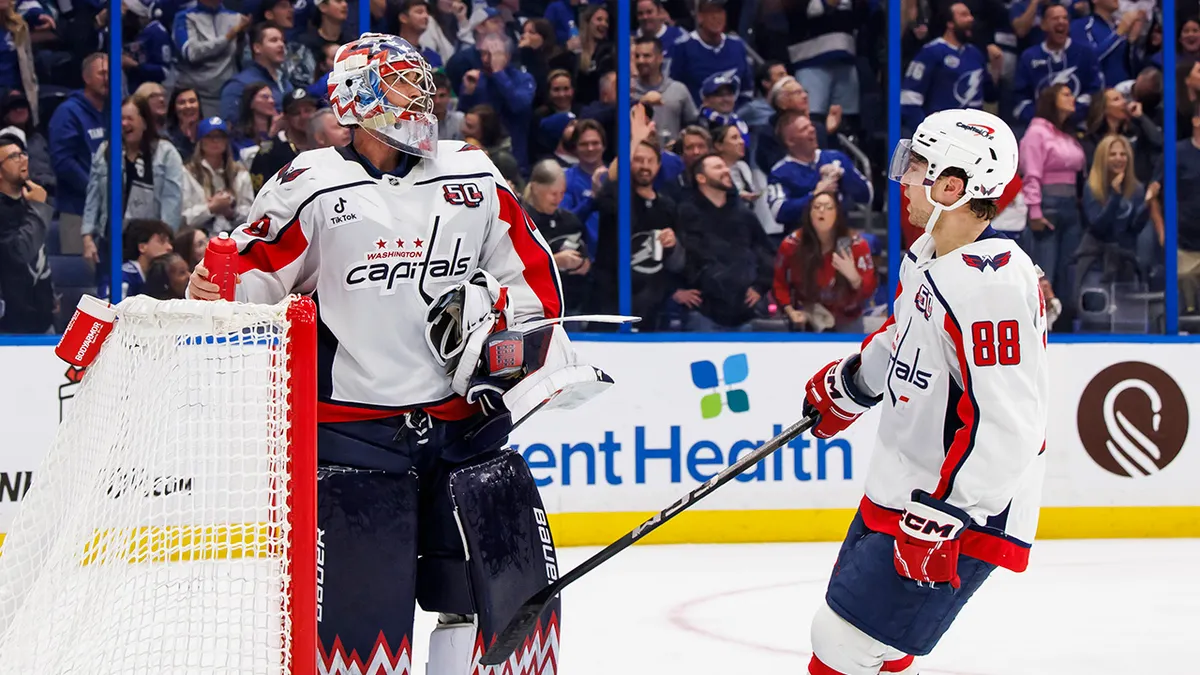
Goalie Charlie Lindgren of the Washington Capitals is consoled by teammate Andrew Mangiapane (88) after scoring on his own net. (Mark LoMoglio/NHLI via Getty Images)
NHL PLAYER RUPTURED TESTICLE AFTER TAKING PUCK TO GROIN
Roughly three minutes after the error, John Carlson tied the game with his third goal of the season. Then, with about five minutes left in regulation, the Caps went on the power play, and Tom Wilson scored what wound up being the game-winning goal.
Lindgren came into the contest with a 2.64 GAA. Unfortunately for him, that number went up with his own work.
Lindgren led the NHL in shutouts last year with six, finishing in eighth place in the Vezina voting in what was a career year.
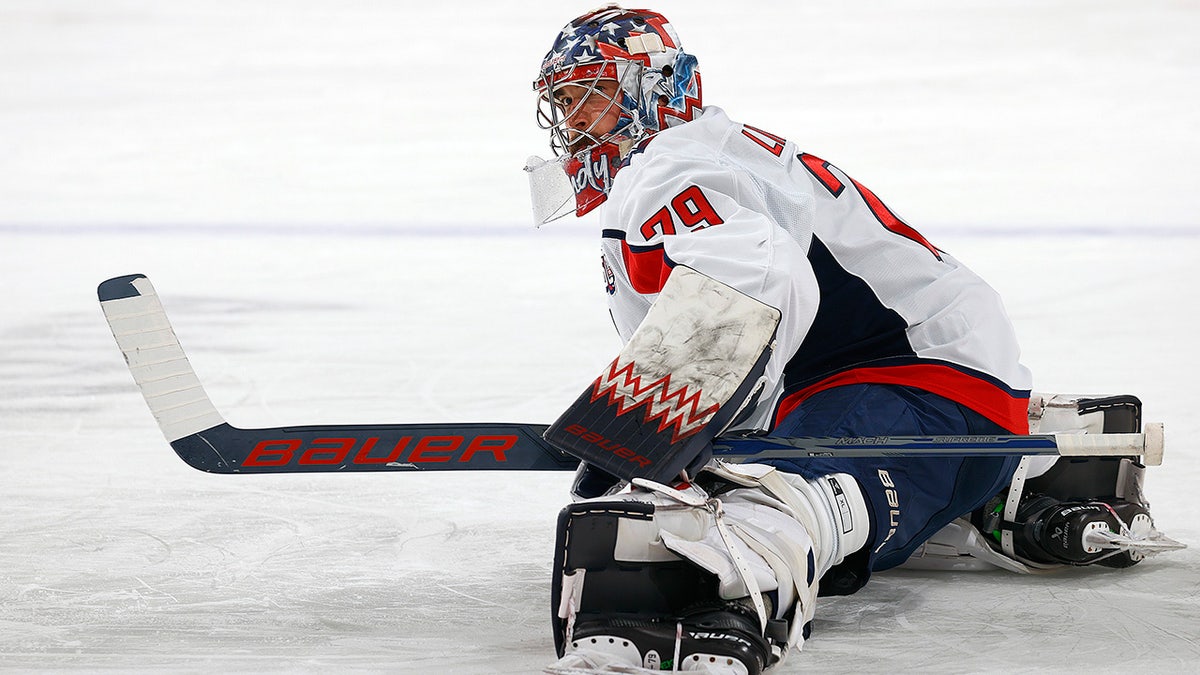
Goaltender Charlie Lindgren of the Washington Capitals stretches on the ice prior to the game against the Florida Panthers at Amerant Bank Arena on Nov. 25, 2024, in Sunrise, Fla. (Eliot J. Schechter/NHLI via Getty Images)
He quickly found his groove after becoming a full-time starter, but the own-goal was certainly one he’d like to have back.
Follow Fox News Digital’s sports coverage on X and subscribe to the Fox News Sports Huddle newsletter.
Sports
Lakers' lineup changes pay off with a convincing win over the Spurs

SAN ANTONIO — It was almost 4 a.m. Wednesday when the Lakers arrived at their hotel, their last two losses exposing some of the worst internal fears of the team.
The way they had played in the second half of losses to Denver and Phoenix had players wondering whether all the work the team had put in over the last two months had been worth it and all the effort and time spent trying to change had mattered.
When Denver pushed the familiar pressure points, the Lakers crumbled. When the offense went cold and the rims got tight in Phoenix, they folded.
Their body language said what no one dared mutter publicly: “Here we go again.”
But when the Lakers took the floor Wednesday evening, they took on the persona of their coach, JJ Redick, who said before the game, “I don’t think I’ve ever dwelled on the past.”
Energized in part by a new starting five and in part by a fresh chance to get back to winning, the Lakers played one of their most consistent games of the season on both ends of the court in a 119-101 win against the San Antonio Spurs.
“I’m very proud of our group,” Redick said. “The response was great. And it’s funny because it’s literally what I talked about with them before the game. It’s just you got to let go of the past. You got to let go of the recent past and you got to get on to the next thing. And like they’ve done already on several occasions, they’ve responded.”
Redick moved rookie Dalton Knecht back into the starting five, moving Cam Reddish to the bench, and the group responded by winning each of the four quarters.
Defensively, the Lakers caused havoc and dictated the game with their physicality, pushing Spurs phenom Victor Wembanyama away from the paint. Offensively, the ball popped, baskets almost always coming as result of crisp passing, the Lakers recapturing vibes that had evaporated during their three-game losing streak.
“We win games when we do that,” guard D’Angelo Russell said of the Lakers’ passing, which produced 31 assists.
When the Lakers have had 27 or more assists, they’re 9-1. When they’re below that number, they’re 2-6.
Knecht led seven players in double figures with 20 points, LeBron James had his sixth triple-double and Anthony Davis had 19 points, 14 rebounds and seven assists. Russell had one of his best games of the season, scoring 17 off the bench. Max Christie added 12.
Davis’ passing, in particular, energized the team and neutralized San Antonio’s defense.
“We’re just trying to get good looks, run our offense and live with the results,” Davis said. “And put guys in actions that we thought that we had an advantage with. We’re able to get some lobs, some pocket passes, some open threes. But we just stayed with it.”
The Lakers’ NBA Cup chances are still alive, but they need a win Friday against Oklahoma City, while needing the Spurs to upset the Suns.
More importantly, though, the Lakers found reason to believe that this version of themselves can be who they are moving forward — and not the rickety version from the previous three games, which featured, in one way or another, gut-churning collapses.
“We came out with force, came out with intensity,” Christie said. “Yeah, I don’t think we really slacked. I thought we did a really good job.”
-

 Science1 week ago
Science1 week agoTrump nominates Dr. Oz to head Medicare and Medicaid and help take on 'illness industrial complex'
-

 Health5 days ago
Health5 days agoHoliday gatherings can lead to stress eating: Try these 5 tips to control it
-

 Health3 days ago
Health3 days agoCheekyMD Offers Needle-Free GLP-1s | Woman's World
-

 Science2 days ago
Science2 days agoDespite warnings from bird flu experts, it's business as usual in California dairy country
-

 Technology2 days ago
Technology2 days agoLost access? Here’s how to reclaim your Facebook account
-

 Science1 week ago
Science1 week agoAlameda County child believed to be latest case of bird flu; source unknown
-

 Sports1 week ago
Sports1 week agoBehind Comcast's big TV deal: a bleak picture for once mighty cable industry
-

 Entertainment19 hours ago
Entertainment19 hours agoReview: A tense household becomes a metaphor for Iran's divisions in 'The Seed of the Sacred Fig'


